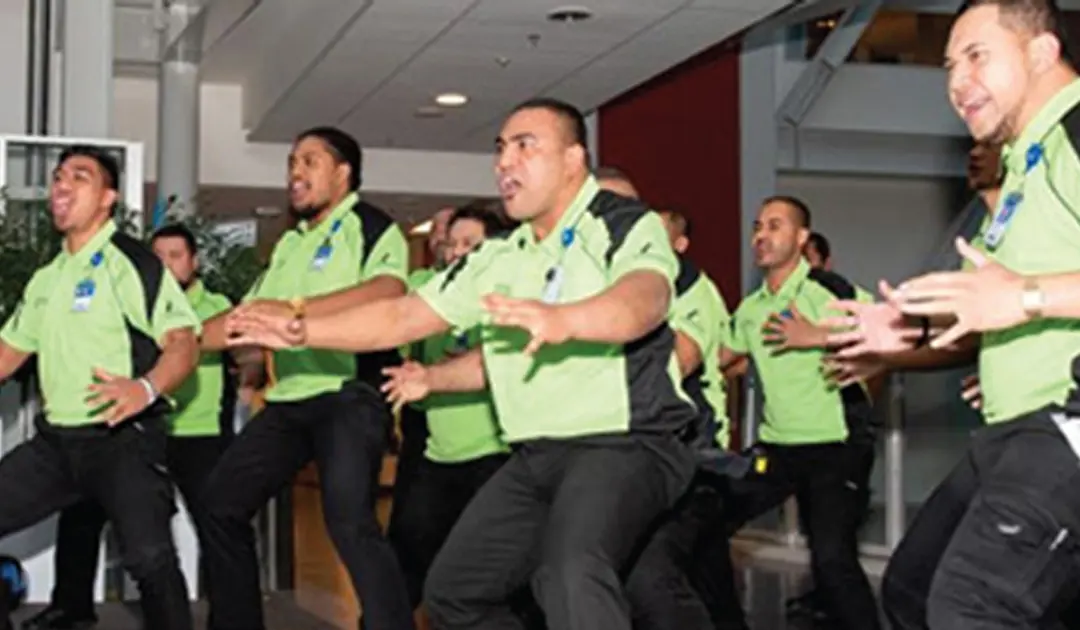
Auckland District Health Board
Written by Sue Ramsay: Head of Security of Auckland District Health Board
Background of Auckland District Health Board
Auckland District Health Board (Auckland DHB) has three major facilities: Auckland City Hospital, Starship Children's Hospital (both on the Grafton Campus and combined have 1100 beds) and Greenlane Clinical Centre; and 28 community facilities. Auckland City Hospital is New Zealand’s largest public hospital as well as the largest clinical research facility. There are approximately one million patient contacts each year, including hospital and outpatient services.
We have approximately 11,000 health and medical staff employed, and we manage a budget of approximately $2.3 billion. Auckland DHB is the largest trainer of doctors in New Zealand, with approximately 1,800 medical staff.
As the Head of Security Services for Auckland DHB, I am responsible for 90 staff, 85 of whom are trained in Management of Actual and Potential Aggression (MAPA®) Foundation and Advanced (now CPI Safety Intervention™) . We have six Advanced MAPA® Instructors in the security team.
Staff safety challenge in emergency department
All major New Zealand Hospitals are faced with increasing verbal and physical violence, mostly directed towards staff. The Health Sector in New Zealand experiences the highest rates of workplace violence of any sector1
1 Report on the 2011 New Zealand Workplace Violence Survey, Massey University
CPI was the only provider who supplied training that met these criteria and is also independently certified. I used Non-Violent Crisis Intervention in a previous role and so had knowledge and confidence in MAPA®’s ability to meet Auckland DHB’s requirements.
Auckland DHB needed to improve staff safety and feelings of safety, and to employ safe restraint methods that complied with the New Zealand Restraint Minimisation and Safe Practice Standard and with policy.
Concerns were raised by clinical staff about staff safety, particularly in Emergency Department, but also in other departments. Staff working in these areas reported not feeling safe at work. The previous external security service provided staff who were trained in “pain based” compliance. Patients were sometimes injured, and clinical staff felt unsafe at times and were often uncomfortable with the security team’s methods.
The implementation of MAPA® Training
CPI first delivered a two-day Foundation course so that internal stakeholders could experience and understand MAPA®’s philosophy and techniques for themselves.
Our first group of Instructors were trained by CPI in April 2018 and others followed. By the end of 2018 the security Instructors trained 100 (First Tier) security and clinical staff who were responsible for leading responses to escalated behaviour.
In May 2019, Auckland DHB brought its security service in-house, with all new Healthcare Security Officers (HSOs) completing Foundation and Advanced MAPA® as part of their intensive three-week induction programme. By early December 2019, all 81 HSOs were fully trained in MAPA®.
The feedback from CPI and in-house trainers’ courses has been uniformly outstanding. Clinical staff love the alignment with clinical values and practice of MAPA®, and HSOs reported gaining more confidence in responding to incidents of escalated behaviour. Any initial reservations were quickly overcome, and the organisation has adopted MAPA® (now CPI Safety Intervention™) as its de-escalation and safe restraint practice.
We have customised content for Legal and Professional Considerations (Unit 7) for the New Zealand and Auckland DHB context but otherwise, MAPA® has proved to be exactly what we required at Auckland DHB.
Outcomes and results of CPI de-escalation techniques training
MAPA® (now CPI Safety Intervention™) is now fully implemented as Auckland DHB’s practice for all calls to manage escalated behaviours. A clinical trainer has started to deliver one-day Foundation courses to nursing intakes and to clinical staff working in second tier departments where enhanced verbal de-escalation techniques are required.
The move to in-house security presented the opportunity to significantly improve the service in many ways. However, MAPA® has remained a critical component of the new HSO service’s success. Some indicators of this success include:
Reduction in reports of violence towards clinical staff in the Adult Emergency Department (AED) of over 50%, as shown in Figure 1 below. Note that the HSOs commenced in early June 2019.
Reduction in the use of personal restraint, especially in the use of high-level physical interventions, as shown in Figure 2 below.
A survey of AED clinical staff was taken in September 2019, three months after the new service started. 97% of staff reported feeling safer because of the new security service.
Many positive comments from staff were received, including:
"…they calm the patient down and communicate care for the patient more than me"
“Very calm, easy natured. They 'coach' the patient to remain calm. Continue to talk to the patient to calm them even when there are four people restraining them.”
“I heard a patient express thanks for engaging (verbally) and not making the patient feel like a hopeless case.”
“It is great to see the guards treating patients with dignity and respect”
“They are so much more aware of the surroundings and show initiative. Great people skills and very friendly and approachable."
At Auckland DHB’s Health Excellence Awards in November 2019, the work of the security service was recognised by receiving the Excellence in the Workplace Award and the overall CEO Award. In giving the CEO Award Ailsa Claire, Auckland DHB CEO, remarked
“This year’s winner is an outstanding example of how a values-based approach can change how we deliver a service. It started out as a vision and has grown into a shining example of what can happen when we start doing things differently”.
MAPA® (now CPI Safety Intervention™) is an essential component of the positive changes brought about by the new HSO security service.